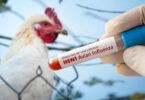The CDC announced on Wednesday that they had updated their Disability and Health Data System (DHDS), which covers six primary disability groups:
- cognitive (serious difficulty concentrating, remembering or making decisions),
- hearing (serious difficulty hearing or deafness),
- mobility (serious difficulty walking or climbing stairs),
- vision (serious difficulty seeing or blindness),
- self-care (difficulty dressing or bathing), and
- independent living (difficulty doing errands alone).
The CDC explained their findings and updated data in a press release. The department wrote:
Today CDC released the annual update to the Disability and Health Data System (DHDS), providing quick and easy online access to state-level health data on adults with disabilities. The latest data, from the 2022 Behavioral Risk Factor Surveillance System (BRFSS), reveal that more than 1 in 4—over 70 million—adults in the United States reported having a disability in 2022.
For the first time, the 2022 BRFSS collected data on experiences with Long COVID, defined as symptoms lasting three months or longer that the person did not have before COVID, to help us better understand the relationship between disabilities and Long COVID. Of particular concern is the finding that Long COVID symptoms were more prevalent among people with disabilities (10.8%) than among those without disabilities (6.6%).
While Long COVID can occur in anyone who gets a SARS-CoV-2 infection (the virus that causes COVID-19), data show that some people or groups of people are at higher risk of developing Long COVID. Some people with disabilities may be more likely to get very sick from COVID-19, or other respiratory viruses, because of underlying medical conditions, congregate living settings, or systemic health and social inequities.
CDC continues to collaborate with clinicians, public health partners, and other federal agencies to better understand the impacts of Long COVID, more generally, and, given the data, better identify and support the needs of people with disabilities. CDC continues to recommend that vaccines are the best protection against the potentially serious outcomes of COVID-19.
Additional DHDS findings
- Older adults reported a higher disability prevalence (43.9% of people aged 65 years and older) compared to other age groups.
- When examining disability status by race/ethnicity, the groups with the highest prevalence (both 38.7%) identified as American Indian or Alaska Native and Other/Multirace.
- CDC has state profile fact sheets that provide an overview of disability in each state, including the percentages and characteristics of adults with and without disabilities. Click on any state listed here to view that state’s profile.
These findings underscore the fact that people with disabilities are a large part of every community and population. Many of us know, or are, someone with a disability, and disability inclusion is beneficial for all. As we commemorate the upcoming 34th anniversary of the Americans with Disabilities Act on July 26, it’s important to remember disability is not a health outcome; it is part of the way people experience life, such as hearing, seeing, moving, processing information, and caring for oneself.
CDC reaffirms its commitment to enhancing disability representation in public health data to better plan and prepare for their needs during emergencies. To address this issue, CDC is collaborating with partners to enhance inclusion of disability in emergency department surveillance and improve efficiency and accuracy of information reported by local health agencies during emergencies. By investing in these initiatives, CDC aims to strengthen national, state, and local response capacity for detecting and monitoring the health and well-being of people with disabilities during current and future public health emergencies.
AUTHOR COMMENTARY
I think anyone who has a modicum of understanding as to what’s going on understands that “Long Covid” is some cute ruse that refers to all the problems that the Covid “vaccines” have caused and will continue to cause.
The WinePress has documented countless examples of this, which you can read-up on here as a refresher. This particular report cites data that CDC refused to publicly disclose until they were court ordered to do so: “Death Shot: Court Orders CDC To Release Internal Data On Millions Of Covid Vaccine Injuries They Concealed From The Public“
Job 13:4 But ye are forgers of lies, ye are all physicians of no value.
Obviously there were plenty of disabilities before 2020, but we know that these “vaccines” have significantly harmed and impaired those that took even just one shot; and that’s not even including all the sickness and problems from all age groups because of prolonged lockdowns and isolation, constant mask-wearing, and so forth.
Proverbs 19:2 Also, that the soul be without knowledge, it is not good; and he that hasteth with his feet sinneth.
And yet people ran off and got this shot without question, and had no knowledge of what it would do to them, and now look what’s happening. “He that hasteth with his feet sinneth.” – “For the wages of sin is death” (Romans 6:23a).
[7] Who goeth a warfare any time at his own charges? who planteth a vineyard, and eateth not of the fruit thereof? or who feedeth a flock, and eateth not of the milk of the flock? [8] Say I these things as a man? or saith not the law the same also? [9] For it is written in the law of Moses, Thou shalt not muzzle the mouth of the ox that treadeth out the corn. Doth God take care for oxen? [10] Or saith he it altogether for our sakes? For our sakes, no doubt, this is written: that he that ploweth should plow in hope; and that he that thresheth in hope should be partaker of his hope. (1 Corinthians 9:7-10).
The WinePress needs your support! If God has laid it on your heart to want to contribute, please prayerfully consider donating to this ministry. If you cannot gift a monetary donation, then please donate your fervent prayers to keep this ministry going! Thank you and may God bless you.








This whole c19 scam sickens me to no end.
me too! I can’t believe people still believe the lie.
I guess there’s going to be an increase in handicap permit applications. Also the workplace will eventually have to find ways to accommodate.